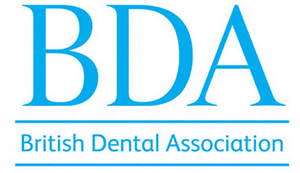- Home
- About us
- Find a practice
Practices in East Sussex
Practices in South West
Practices in Norfolk
Practices in Portsmouth
- Advanced Services
- Treatments
- Our Fees
- Reviews
- Contact
- Home
- About us
- Find a practice
Practices in East Sussex
Practices in South West
Practices in Norfolk
Practices in Portsmouth
- Advanced Services
- Treatments
- Our Fees
- Reviews
- Contact
Request an appointment
For dental appointments, please fill in the form below and we will call you back or email you to confirm your appointment.
Burning mouth syndrome
What is Burning Mouth Syndrome?
Burning Mouth Syndrome (BMS) is a hot feeling or sensation which can affect your tongue, lips, palate or areas all over your mouth. BMS is sometimes called ‘glossodynia’.
You get the feeling when there are changes in the way the nerves in your mouth send messages to your brain – for example, about taste and temperature. When your brain doesn’t understand these messages properly it can cause the feeling of pain or burning.
Although some parts of your mouth may feel like they are burning, they will not be hot to the touch. You might not be able to see any soreness or redness in the areas that are hurting.
BMS is sometimes called a ‘neuropathic pain’, as it happens when there is damage to the nerves.
What causes BMS?
It’s hard to say. No one knows exactly what causes BMS. However, some possible causes include:
- Hormone changes
- Stress, anxiety or depression
- Problems with your immune system
- Damage to the nerves controlling taste or pain
- A reaction to certain types of toothpastes or mouthwashes
- Badly fitting dentures or being allergic to the materials used to make dentures.
It is better to have three meals a day, and no more than two snacks.
Are there any medical conditions that can cause it?
There are some medical conditions which might cause BMS. They are:
- Dry mouth
- Acid reflux (when acid from your stomach comes up into your mouth)
- Thrush (a fungal infection in your mouth, also called ‘candida’)
- Nutritional deficiencies (such as when your body does not make or store enough iron, vitamin B12 or folic acid)
- Diabetes
- Thyroid problems.
In some cases, BMS may have more than one cause.
Who does it affect?
Anyone can have BMS, but it is more common in middle-aged or older women during the menopause (‘change of life’).
What kind of problems might I have?
You may have a moderate to severe burning feeling on your tongue, palate, lips, gums or inside your cheek.
For some people the feeling begins in the morning and builds up to a peak by the evening, often easing by the night-time. Some people have the burning feeling all the time. For others, the pain comes and goes. Other symptoms may include numbness or tingling of your mouth or tongue, a bitter or metallic taste, or a dry or sore mouth.
People often describe BMS as feeling like you have scalded your mouth with hot food or drink.
How is it diagnosed?
Your dentist will examine your mouth thoroughly to try to find the cause of the problem. They will also look at your medical history and may refer you to your doctor for ‘investigations’. These could be blood tests or swabs, to see if there are any infections, nutritional deficiencies or other medical conditions.
You may need to have allergy testing done by a specialist dermatologist. Your doctor can refer you for this if needed.
You may also need blood tests to see if you have a deficiency or disorder such as thyroid problems or diabetes.
What treatments are there?
Treatments for BMS can vary depending on the causes.
If BMS has been brought on by poor diet, then your dentist can recommend supplements for you. If needed, your dentist can also adjust or replace irritating dentures or prescribe you medication for a fungal infection in your mouth.
Some doctors may prescribe a course of counselling and low-dose anti-depressants. This is because BMS can ‘wear down’ some people and cause depression because they are having a daily battle with the pain. Doctors can also change your medication if your BMS has been caused by ‘dry mouth‘ (a side effect of some medications).
Other therapies can include relaxation, yoga, meditation and hypnotherapy, as they have been found to help some people cope with anxiety.
How can I ease the symptoms myself?
You can help to ease the symptoms yourself at home by:
- Sipping water often
- Sucking on crushed ice
- Chewing sugar-free gum – this helps to produce more saliva which helps to stop your mouth getting dry
- Avoiding things that irritate your mouth – such as hot and spicy foods, mouthwashes that contain alcohol, or acidic fruits and juices
- Avoiding tobacco and alcohol products
Source: British Dental Health Foundation
Book an appointment at Dentistry For You
To start your journey to a new smile book an appointment with us today.
Why Dentistry For You?
- Established over 35 Years
- NHS & private dental care
- High quality treatments provided by experienced dentists
- In house quality assurance programme
- Over 2700 patient reviews across all locations
- All our practices are wheelchair friendly
Patient satisfaction is very important to us





